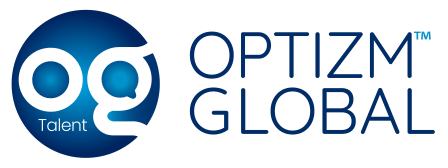Today, businesses often manage teams spread across various countries and continents. This workforce globalization presents unique challenges and opportunities for Human Resources (HR) management.
To successfully manage a global team, HR professionals must adopt effective strategies that cater to diverse cultural, legal, and operational environments.
This blog presents some key strategies to ensure effective HR management for global teams.
Embrace Cultural Diversity
Cultural diversity can be a valuable asset if handled correctly. HR managers should cultivate an environment that honors and embraces the unique differences among team members. Conducting regular cultural sensitivity training sessions helps employees understand and appreciate cultural differences.
Encouraging employees to share and celebrate their cultural traditions in the workplace promotes inclusivity. Open communication about cultural practices and preferences ensures everyone feels heard and respected.
Streamline Communication
Any team needs effective communication to succeed, especially when its members are in various time zones. Communication tools like Slack, Microsoft Teams, or Zoom facilitate real-time conversations and virtual meetings. Setting clear communication guidelines, such as response times, preferred channels, and meeting schedules, establishes expectations. Regular check-ins help team members stay connected and informed about ongoing projects and company updates.
Ensure Compliance with Local Laws
Managing a global team requires a thorough understanding of the legal requirements in each country where the company operates. Staying updated on local employment laws, including work hours, minimum wage, and termination procedures, is essential. It is crucial to adhere to local tax laws and regulations, including those related to payroll taxes and employee benefits.
Offer Competitive Benefits
To attract and retain top talent globally, HR managers should offer competitive benefits tailored to the needs of employees in different regions. Providing health insurance plans that meet the standards and expectations of employees in each country is essential.
Offering flexible work hours and remote work options accommodates different time zones and personal commitments. Investing in employees’ professional growth by providing training programs, workshops, and opportunities for career advancement is also crucial.
Foster Team Collaboration
Collaboration is essential for the success of a global team. Creating cross-functional teams that bring together employees from different regions and departments to work on projects fosters collaboration.
Virtual team-building activities help strengthen relationships and build trust among team members. Encouraging employees to share their expertise and knowledge through regular meetings, workshops, and internal communication can also foster knowledge sharing.
Implement Effective Onboarding Programs
A well-structured onboarding program is crucial for integrating new employees into the company culture and ensuring they feel welcomed and supported. Developing a standardized onboarding process customized for different regions helps create consistency.
Assigning a local mentor or buddy to help new employees navigate their new work environment and culture provides local support. Extending the onboarding process beyond the initial few weeks providing ongoing support and training, helps new hires acclimate.
Prioritize Employee Well-being
Employee well-being is a critical component of effective HR management. Providing access to mental health resources, including counseling services and stress management programs, supports employee well-being.
It is essential to promote a healthy work-life balance by encouraging employees to take breaks, use their vacation time, and set boundaries between work and personal life. Recognizing and rewarding employees’ hard work and achievements through regular appreciation programs and incentives boosts morale.
Utilizing Technology for HR Management
Technology can streamline HR processes and improve efficiency. Implementing an HR Information System (HRIS) to manage employee data, payroll, benefits, and compliance simplifies HR management. Using performance management tools to set goals, track progress, and provide employee feedback enhances performance management. Offering training and development programs through a Learning Management System (LMS) facilitates continuous learning and skill development.
Regularly Evaluate and Adapt Strategies
The global business landscape constantly evolves, and HR management strategies must adapt accordingly. Regularly collecting feedback from employees helps understand their needs and concerns. Utilizing data analytics to evaluate HR strategies and identify areas for improvement is advantageous. Keeping abreast of global HR trends and best practices ensures the company’s HR strategies remain relevant and practical.
Conclusion
In conclusion, effective HR management for global teams involves cultural sensitivity, clear communication, legal compliance, competitive benefits, team collaboration, structured onboarding, employee well-being, technological integration, and continuous evaluation.
By implementing these strategies, HR managers can create a cohesive and productive global team that drives business success and fosters a supportive and inclusive work environment. As businesses continue to expand globally, the role of HR in managing diverse teams becomes increasingly crucial, making these strategies essential for long-term success. Want to know more about HR services? Visit here.






